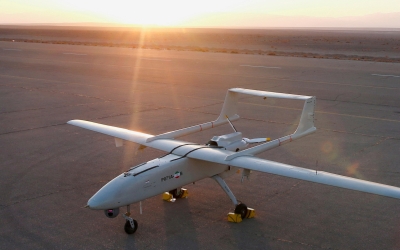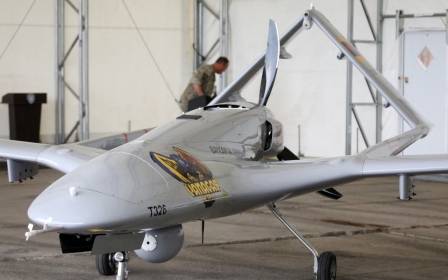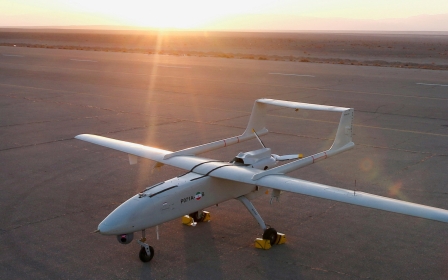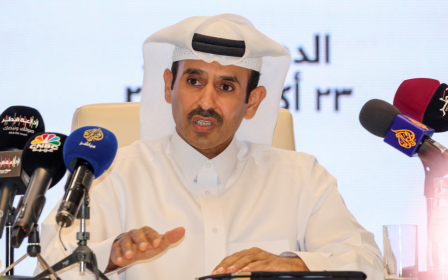Turkish defence minister in talks with Kyiv, Moscow to resume grain deal
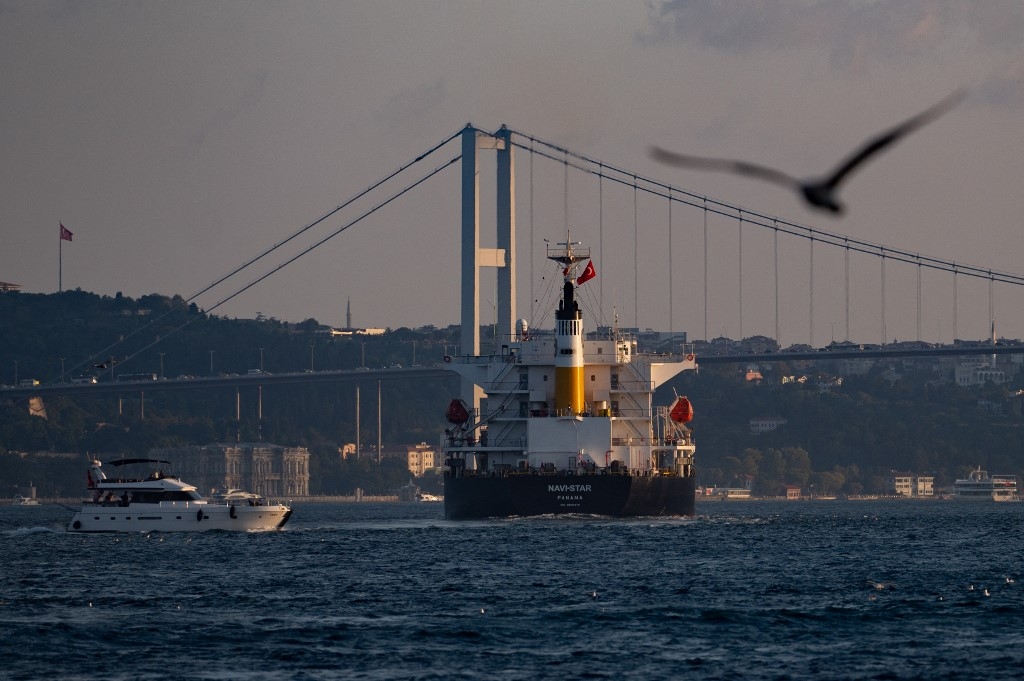
Turkey's defence minister is in talks with counterparts in Moscow and Kyiv to try to revive a UN-brokered deal for exports of Ukrainian grain, the ministry said on Sunday.
Hulusi Akar has asked parties to avoid any "provocation" that could affect the continuation of the deal, it said in a statement.
"The inspection of grain-laden vessels waiting in front of Bosphorus will continue today and tomorrow," the statement said.
Russia suspended its participation in the Black Sea deal on Saturday, effectively cutting shipments from Ukraine, one of the world's top grain exporters, in response to what it called a Ukrainian drone attack on its fleet.
Moscow's decision to pull out of the deal has provoked international outrage and dealt a blow to attempts to ease a global food crisis triggered by Moscow's invasion of Ukraine.
New MEE newsletter: Jerusalem Dispatch
Sign up to get the latest insights and analysis on Israel-Palestine, alongside Turkey Unpacked and other MEE newsletters
The suspension of July's Black Sea Grain Initiative, which has sought to avert famine and tame inflation, will cut shipments from Ukraine, one of the world's biggest grain exporters, from its crucial Black Sea ports.
US President Joe Biden called the move "purely outrageous", saying it would increase starvation, while his top diplomat accused Russia of weaponising food.
"Any act by Russia to disrupt these critical grain exports is essentially a statement that people and families around the world should pay more for food or go hungry," US Secretary of State Antony Blinken said in a statement.
On Sunday, Russia's ambassador to Washington, snapped back, saying the US response was also "outrageous" and made false assertions about Moscow's move.
Turkey not 'officially notified'
Turkey had not been "officially notified" by Russia ahead of its withdrawal from the grain deal, of which Ankara and the UN are guarantors, a Turkish security source told AFP on Saturday.
The agreement signed by Russia and Ukraine on July 22 in Istanbul allowed the export of more than nine million tonnes of grain and agricultural products and is supervised by a body in Turkey.
Russia's defence ministry said Ukraine attacked the Black Sea Fleet near Sevastopol on the Russian-annexed Crimean peninsula with 16 drones early on Saturday, and that British navy "specialists" had helped to coordinate the "terrorist" attack.
Moscow also accused British navy personnel of blowing up the Nord Stream gas pipelines last month, a claim that London said was false and designed to distract from Russian military failures in Ukraine.
Ukrainian President Volodymyr Zelensky said the United Nations and the Group of 20 (G20) major economies must make a strong response to what he called Russia's nonsensical move.
"This is a completely transparent attempt by Russia to return to the threat of large-scale famine for Africa, for Asia," Zelensky said in a video address, adding that Russia should be kicked out of the G20.
'Acute hunger'
Russia's departure from the grain deal marks a new development in a war that has recently been dominated by a Ukrainian counteroffensive and Russian drone and missile attacks that have destroyed more than 30 percent of Ukraine's generating capacity and hit populated areas.
Each side has accused the other of being prepared to detonate radioactive bombs.
President Vladimir Putin ordered Russia's invasion of its smaller neighbour in an offensive he said was aimed at demilitarising and "denazifying" Ukraine. Kyiv and the West say the war is an unprovoked act of aggression by Moscow.
The grain deal had restarted shipments from Ukraine, allowing sales on world markets and targeting the pre-war level of five million tonnes exported from Ukraine each month.
More than nine million tonnes of corn, wheat, sunflower products, barley, rapeseed and soya have been exported under the deal.
However, ahead of its 19 November expiry, Russia had repeatedly said that there were serious problems with it, while Ukraine has complained that Moscow had blocked almost 200 ships from picking up grain cargoes.
When the agreement was signed, the UN World Food Programme said some 47 million people had moved into "acute hunger" as the war halted Ukrainian shipments.
The deal ensured safe passage in and out of Odesa and two other Ukrainian ports in what an official called a "de facto ceasefire" for the ships and facilities covered.
'Indefinite term'
Russia told UN Secretary-General Antonio Guterres in a letter, seen by Reuters, that it was suspending the deal for an "indefinite term" because it could not "guarantee safety of civilian ships" travelling under the pact.
Moscow asked the UN Security Council to meet on Monday to discuss the attack, Deputy UN Ambassador Dmitry Polyanskiy wrote on Twitter.
"The Secretary-General is deeply concerned about the ongoing situation regarding the Black Sea Grain Initiative," Guterres' spokesperson said on Sunday.
"He has decided to delay his departure for the Arab League Summit in Algiers by a day to focus on the issue."
Five outbound and four inbound vessels safely passed through the humanitarian corridor, the UN coordinator for the deal said on Saturday.
"There are more than 10 vessels both outbound and inbound waiting to enter the corridor," Amir Abdulla said in a statement, adding there was no agreement between the parties for the movement of vessels on Sunday.
Ukraine's Foreign Minister Dmytro Kuleba, accusing Russia of using a "false pretext" to sink the deal, called on "all states to demand Russia to stop its hunger games and recommit to its obligations".
The European Union said "all parties must refrain from any unilateral action that would imperil" a deal it described as a critical humanitarian effort.
Middle East Eye delivers independent and unrivalled coverage and analysis of the Middle East, North Africa and beyond. To learn more about republishing this content and the associated fees, please fill out this form. More about MEE can be found here.


